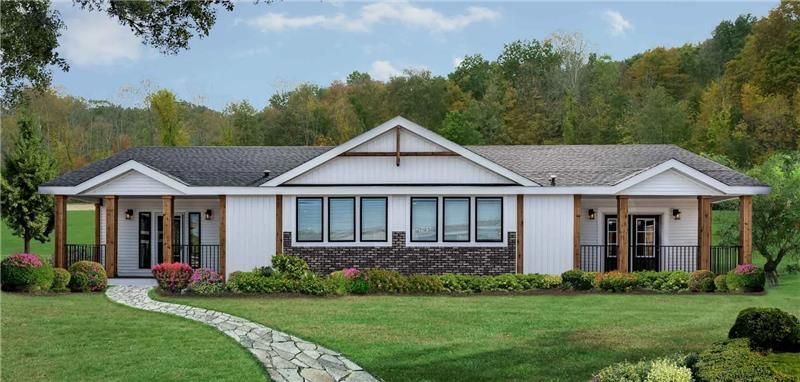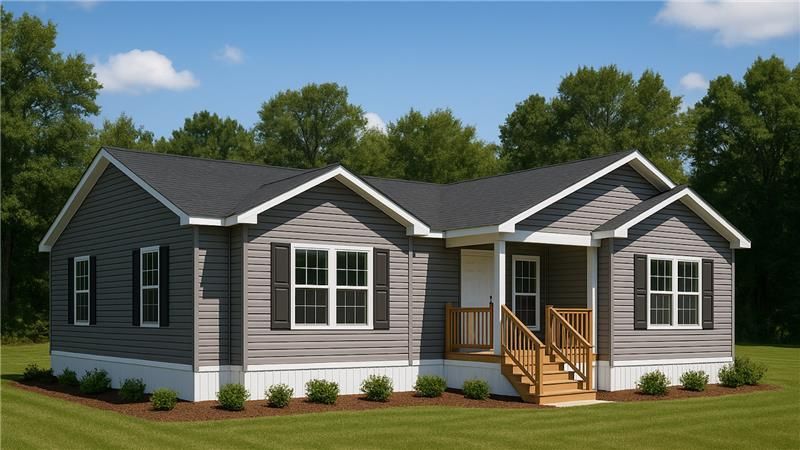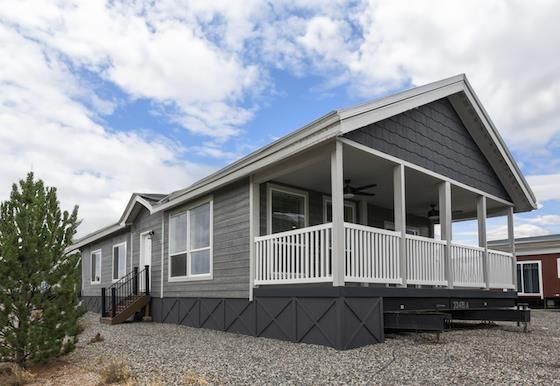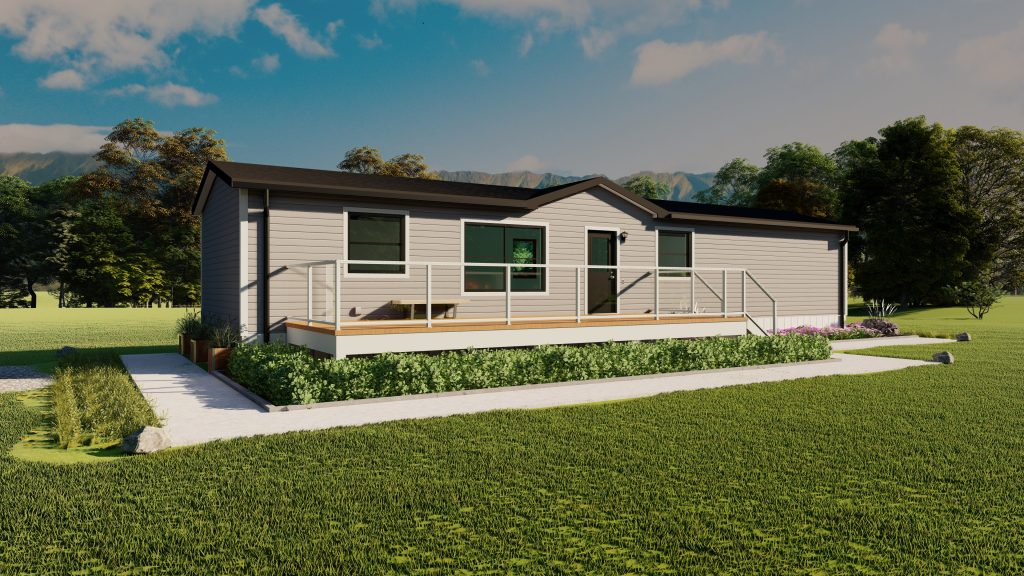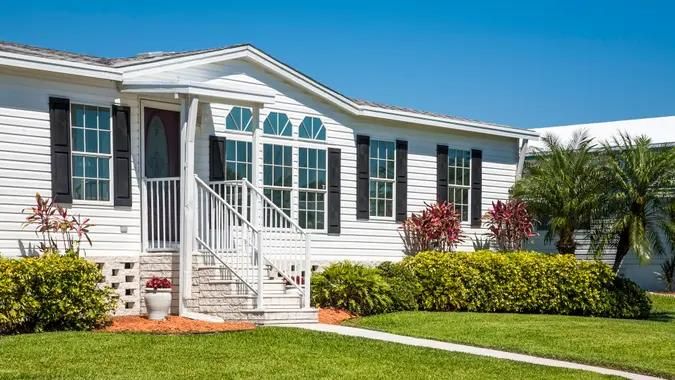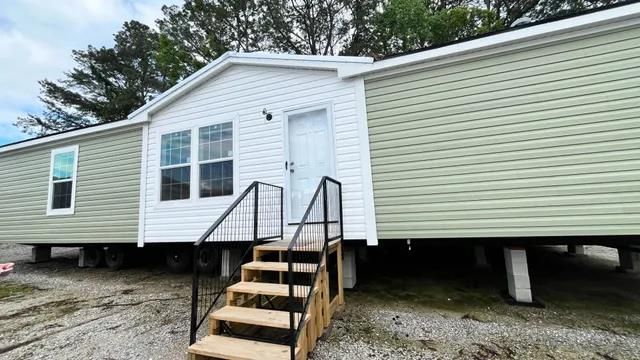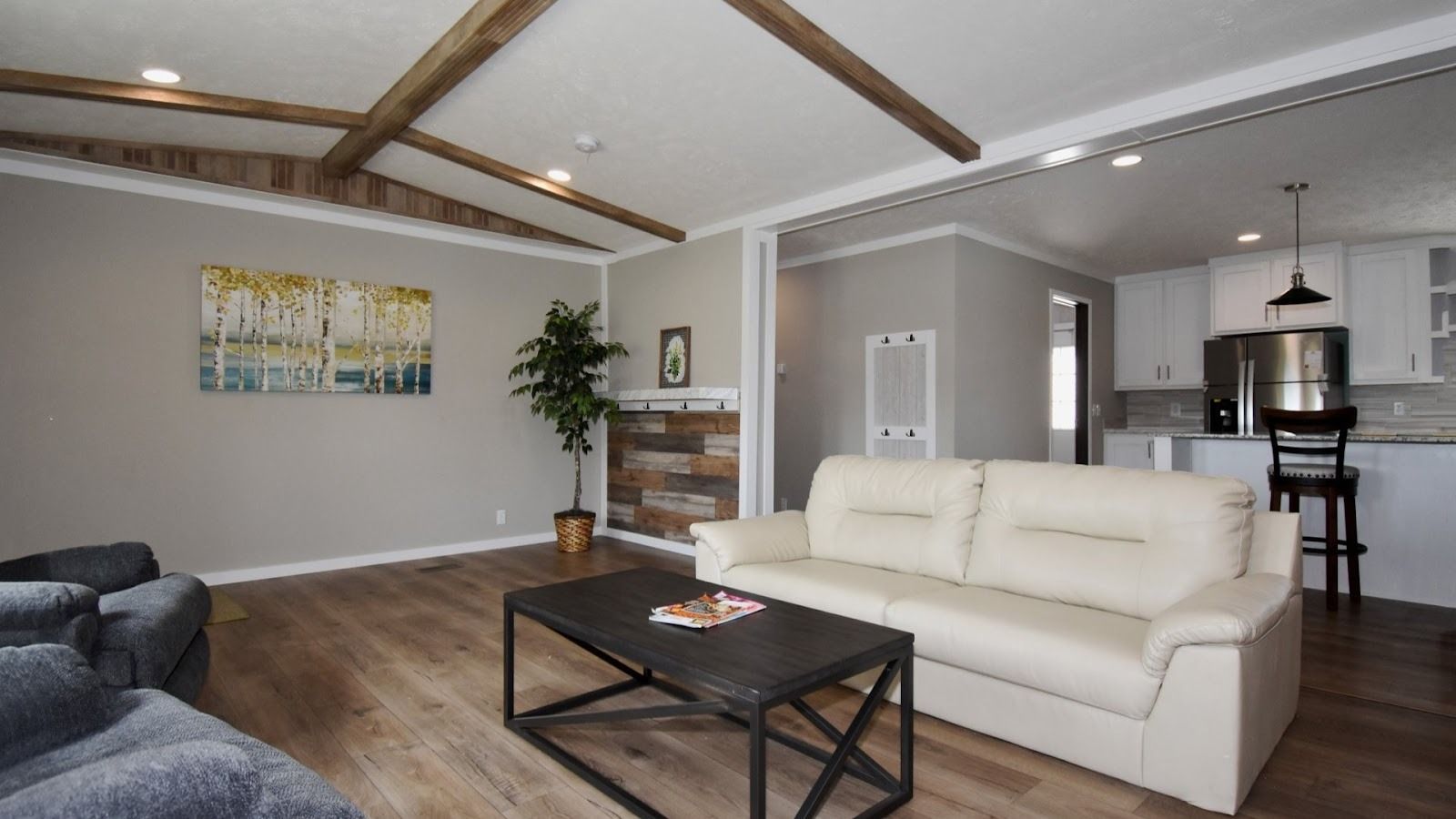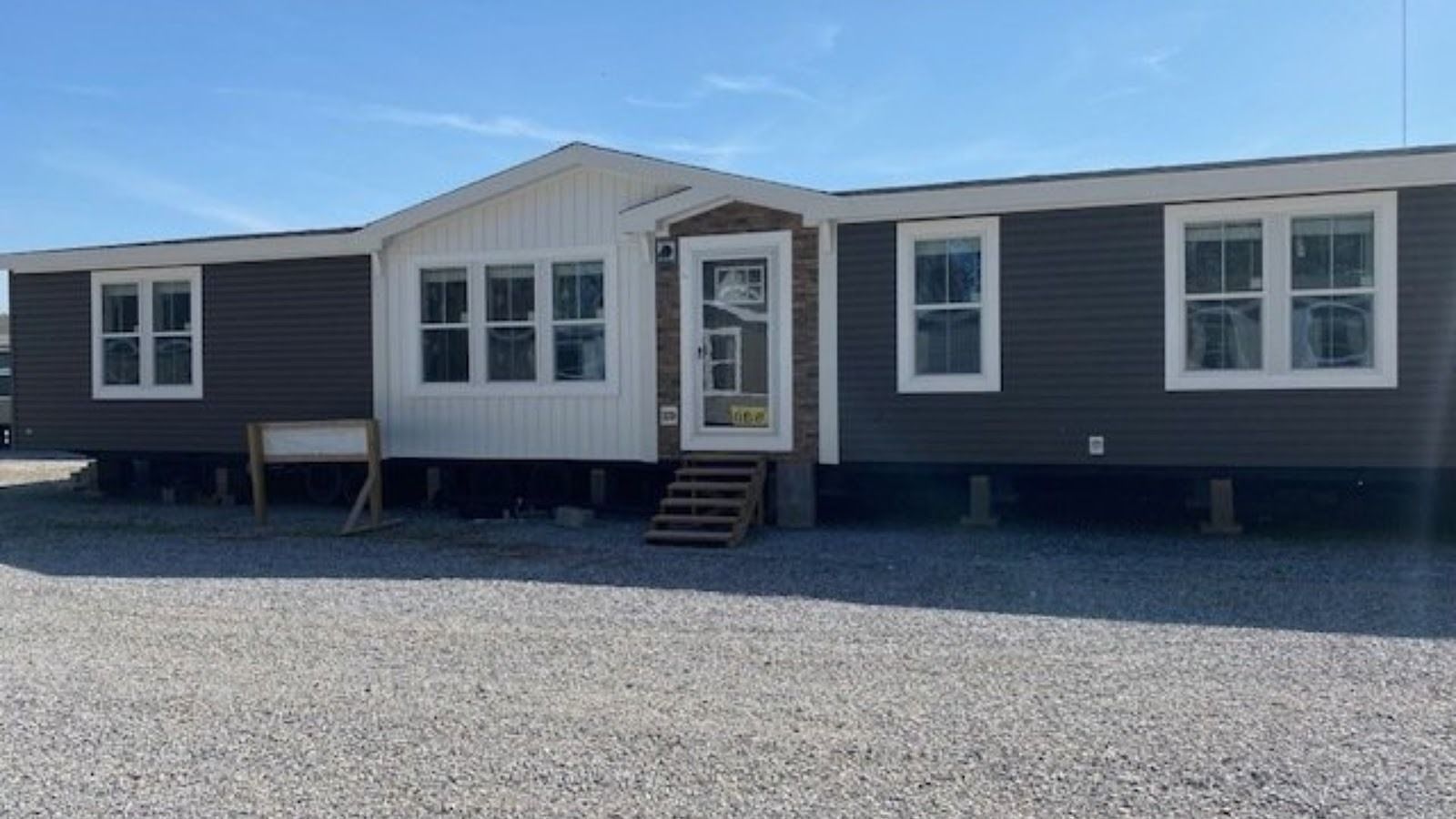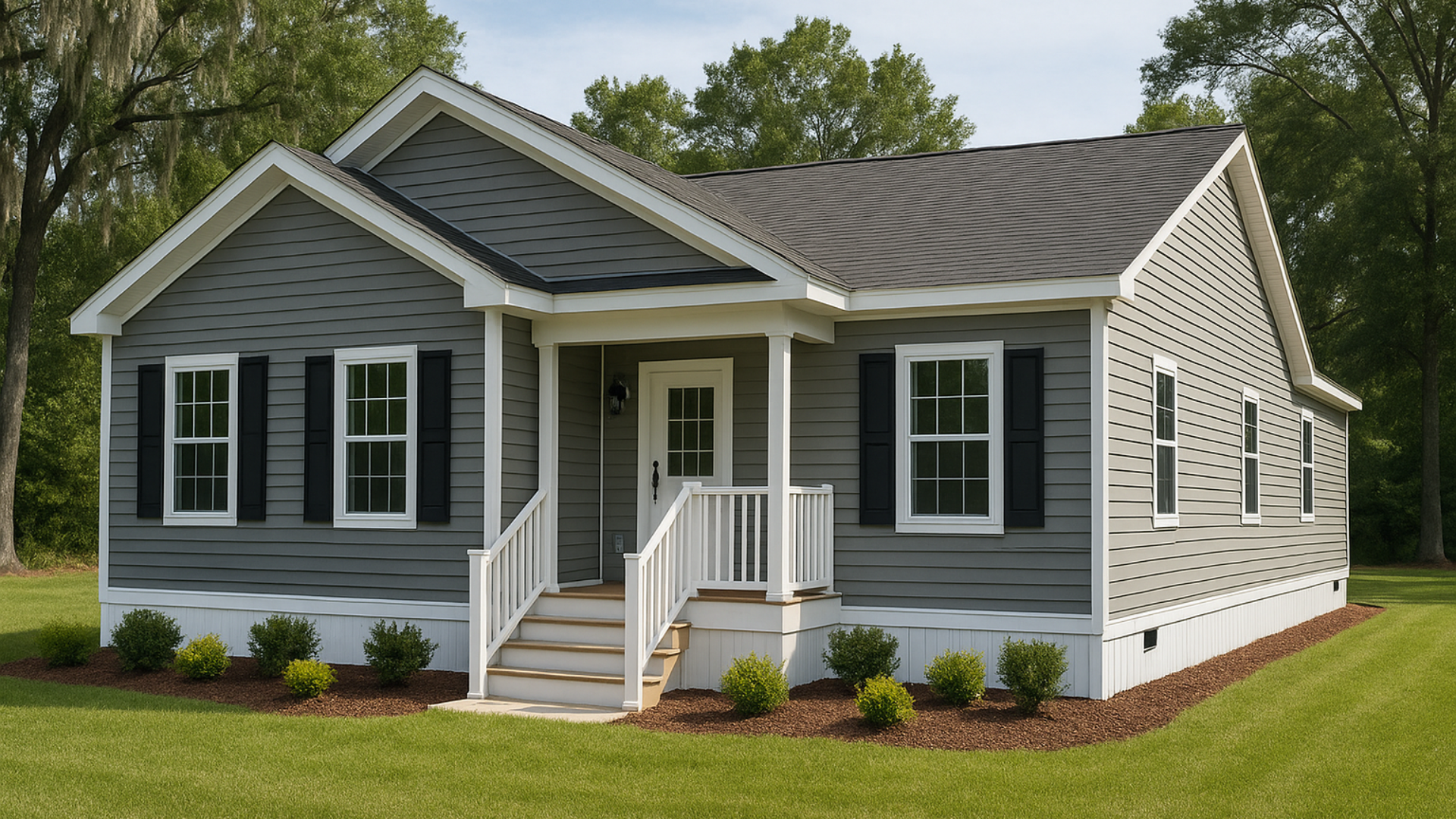Gen Z’ers Are Now Buying Homes. Here’s Why Manufactured Homes Are So Popular With Them
Gen Z’ers Are Now Buying Homes.
Here’s Why Manufactured Homes Are So Popular With Them.
Millennials have gotten a lot of attention for their housing preferences and habits. But looking ahead, Gen Zers are poised to make even bigger housing impacts. As they enter the home-buying market in larger numbers, Gen Zers (born between 1997 and 2010) are making their mark on the housing landscape. They’re also known as iGen or generation Z, depending on which researcher you ask. While it’s too early to know exactly how or why this happened, one thing is clear: Millennials grew up during an era that was very different from the one their parents experienced as young adults. The Great Recession, 9/11, and digital technology combined to create a new world for all of us - especially this generation of young people who are now coming into their own as adults.
What did Gen Zers experience growing up?
The most significant difference between the generations is the gap in their formative years. For Gen Z, the “Great Recession” was not a temporary economic downturn - it was the economic climate of their childhood.
The Millennials experienced a strong economy throughout the 1990s and 2000s, but Gen Zers’ childhood was marked by economic anxiety. They grew up in an era of economic uncertainty, which has shaped their housing expectations and home-ownership goals. The effects of 9/11 were closely linked to the economic climate of the era.
Millennials were in their late teens and early twenties when the towers fell, marking the beginning of a new era of heightened security and war. This generation was aware of the dangers of terrorism and prepared for the worst, but Gen Zers were much younger and more affected by the ongoing tensions. They have always been aware of the dangers of terrorism, and the “new normal” has impacted their ambitions and expectations.
The Great Recession and Millennials
The Great Recession was a defining moment for Millennials, and it affected their home-ownership rates. Millennials purchased homes at lower rates than the generation before them, and Gen Zers are expected to continue this trend.
While Millennials bought homes at an average rate of 2.3 per thousand each year, Gen Zers are projected to buy at an average rate of 1.4 per thousand each year. Millennials bought homes at a lower rate because they struggled with rising student debt, limited incomes, and challenging job prospects. Gen Zers are expected to buy homes at a lower rate because they are burdened by student debt and rising housing prices.
In short, Gen Zers will likely be priced out of the market. While Millennials were expected to eventually rise to the same home-ownership rates as the previous generation, Gen Zers will likely never significantly exceed those rates.
9/11 and Millennials
The September 11th attacks were a defining moment for Millennials, and they affected their home-ownership rates. The aftermath of 9/11 caused Millennials to delay marriage and childbearing, which also slowed down their home-ownership rates. Millennials had historically high home-ownership rates. However, the events of 9/11 led to a slight dip in those rates. Gen Zers are expected to continue this trend. While home-ownership rates were steadily rising for Millennials, Gen Zers are expected to see those rates level off or decline.
Gen Zers were very young when the 9/11 attacks occurred, and the economic climate of that era has shaped their home-ownership expectations. Millennial home-ownership rates were expected to rise and eventually surpass the rates of previous generations. And while they did rise, Gen Zers are likely to see home-ownership rates level off or decline.
Digital Culture and Millennials
The rise of social media and mobile technology has also shaped Millennials’ home-ownership habits. Millennials are the first generation to grow up with the internet as a central part of life. They have always had easy and convenient access to information, and they have always been comfortable with technology.
Millennials have been more likely to live alone, and they have been more likely to rent instead of buy homes. Gen Zers have grown up with technology, too, but they have been less social during their formative years. They have spent more time on screens, whether at home or on the go. This shift in socializing habits means that Gen Zers are now ready for more face-to-face interactions, which is a key difference between the two generations.
Gen Zers Are Already Having a Housing Impact
The effects of the Great Recession and 9/11 were experienced during the formative years of Generation Z. While those events happened before Gen Zers were born, the economic climate of the era has shaped their housing expectations and home-ownership goals. This has already affected the Millennial generation’s home-ownership rates, as fewer young people have been purchasing homes. The effects of digital culture have also been felt by Gen Zers as they have matured and entered the housing market. Gen Zers have been less likely to live alone, have been less likely to rent, and have been more likely to buy homes. As this generation enters the housing market in larger numbers, it will have an even bigger impact on the housing landscape.
Gen Zers Will Change the Housing Market Beyond 2020
Gen Zers have been shaped by the economic and social events of the early 2000s - and they have been shaped by a decade of economic recovery and innovation. This generation has always been aware of how technology can be used for good and for ill. They have always been aware of the importance of privacy, data security, and responsible use of technology.
As Gen Zers enter adulthood and make their mark on the housing market, they will do so with these values in mind. They may not be as quick to embrace certain technological advancements, and they will likely exercise more caution when it comes to their personal data. As a result, Gen Zers will make their mark on the housing market in new ways. We’ll see more cautious homeowners and more thoughtful adoption of new technologies.
How Gen Zers Will Change the Housing Market Beyond 2020
In order to understand how Gen Zers will change the housing market, it’s important to know what they value when it comes to housing.
Gen Zers are likely to prefer smaller homes with shorter commutes. They are likely to prioritize walkability and access to public transportation. And they are likely to favor neighborhoods with diverse housing types. As more Gen Zers enter the housing market, they will likely continue to favor smaller homes with shorter commutes. They may also place a greater emphasis on walkability and access to public transportation.
More Gen Zers in the market may also lead to more diverse housing options, or at least a re-embracing of the benefits of mixed-use neighborhoods.
Conclusion
The Millennial generation has been at the forefront of the housing market since they began entering the market in larger numbers around the year 2000. Now, as Gen Z enters the market in larger numbers, we will see a new set of priorities and preferences. Beyond their housing preferences, this younger generation will bring a new set of circumstances with them. They will be less likely to have large amounts of student debt and more likely to have higher levels of overall debt. They will also be less likely to have been impacted by the Great Recession, and they will be less likely to have been impacted by 9/11.
As a result, Gen Zers will likely be more ambitious than their predecessors. They will likely want to buy bigger, better, and sooner. They will likely be quicker to buy homes, and they may be more open to manufactured housing.
Affordable housing is a hot topic in the United might be a new way to look at affordable housing. Modular homes are often thought of as a low-income housing option, but this isn’t always the case. In fact, mobile homes can be a good investment for anyone looking for a long-term investment or who wants to live in a flexible, sustainable, and affordable home.
Modular homes are cheaper, fast to build, customizable, undoubtedly affordable, and super strong. Contact Jaco Sales LLC for one of the best available modular home building assistance. Call now at 334-283-1017 or visit the website for more details.




